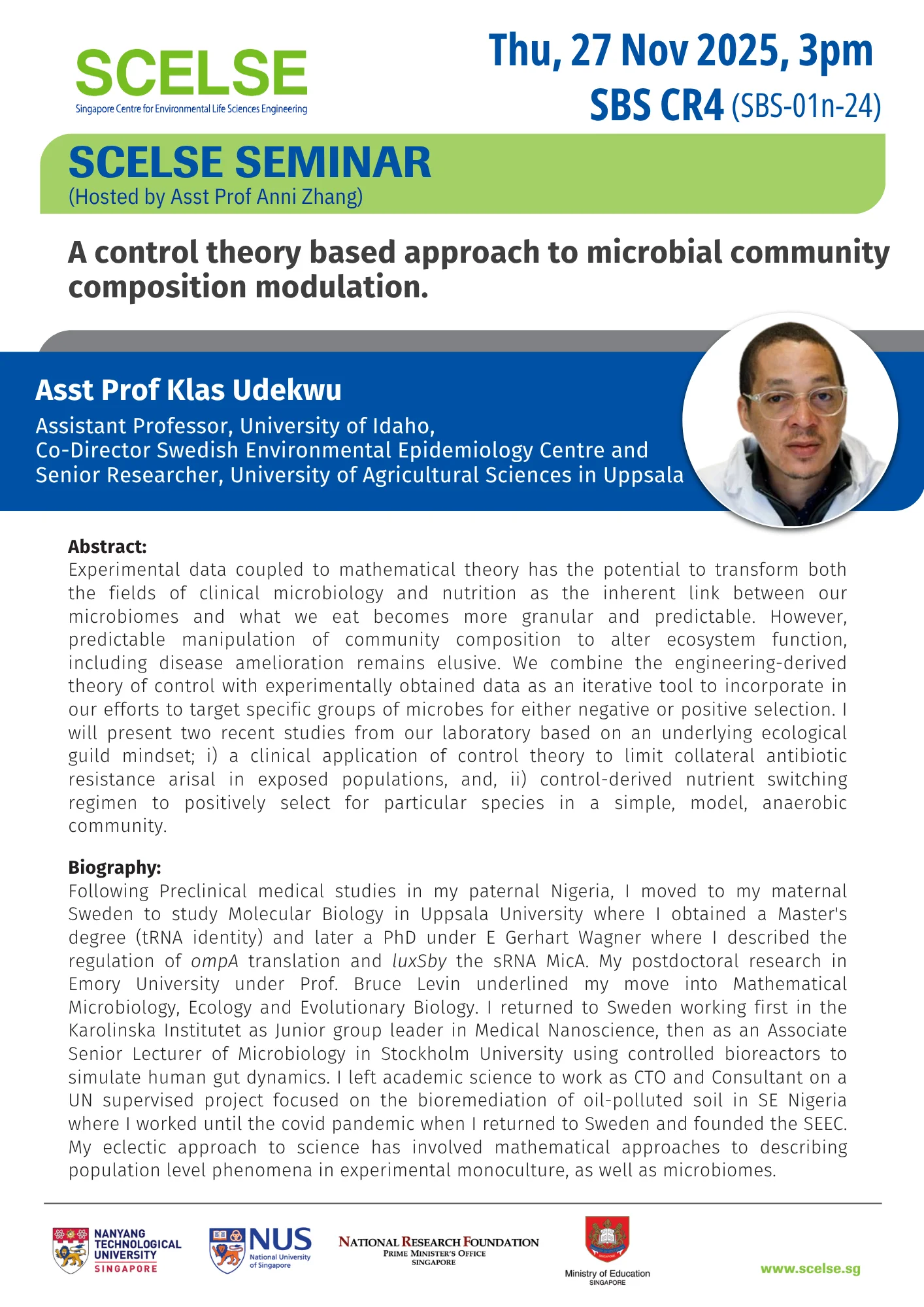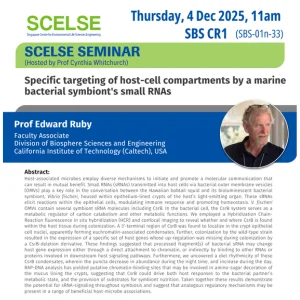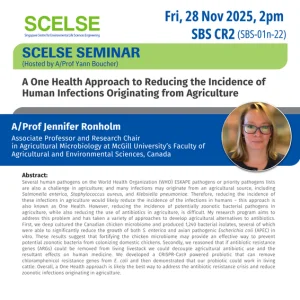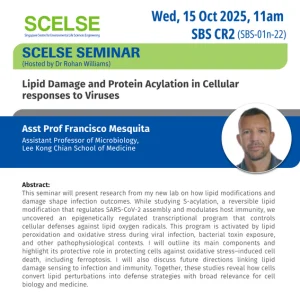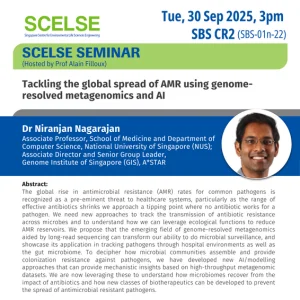A control theory based approach to microbial community composition modulation
Date: Thursday, 27 Nov 2025
Time: 3pm –4pm
Venue: SBS CR4 (SBS-01n-24)
Abstract:
Experimental data coupled to mathematical theory has the potential to transform both the fields of clinical microbiology and nutrition as the inherent link between our microbiomes and what we eat becomes more granular and predictable. However, predictable manipulation of community composition to alter ecosystem function, including disease amelioration remains elusive. We combine the engineering-derived theory of control with experimentally obtained data as an iterative tool to incorporate in our efforts to target specific groups of microbes for either negative or positive selection. I will present two recent studies from our laboratory based on an underlying ecological guild mindset; i) a clinical application of control theory to limit collateral antibiotic resistance arisal in exposed populations, and, ii) control-derived nutrient switching regimen to positively select for particular species in a simple, model, anaerobic community.
Speaker:
Asst Prof Klas Udekwu
Assistant Professor, University of Idano,
Co-Director Swedish Environmental Epidemiology Centre and Senior Researcher,
University of Agricultural Sciences in Uppsala
Biography:
Following Preclinical medical studies in my paternal Nigeria, I moved to my maternal Sweden to study Molecular Biology in Uppsala University where I obtained a Master’s degree (tRNA identity) and later a PhD under E Gerhart Wagner where I described the regulation of ompA translation and luxSby the SRNA MicA. My postdoctoral research in Emory University under Prof. Bruce Levin underlined my move into Mathematical Microbiology, Ecology and Evolutionary Biology. I returned to Sweden working first in the Karolinska Institutet as Junior group leader in Medical Nanoscience, then as an Associate Senior Lecturer of Microbiology in Stockholm University using controlled bioreactors to simulate human gut dynamics. I left academic science to work as CTO and Consultant on a UN supervised project focused on the bioremediation of oil-polluted soil in SE Nigeria where I worked until the covid pandemic when I returned to Sweden and founded the SEEC. My eclectic approach to science has involved mathematical approaches to describing population level phenomena in experimental monoculture, as well as microbiomes.
